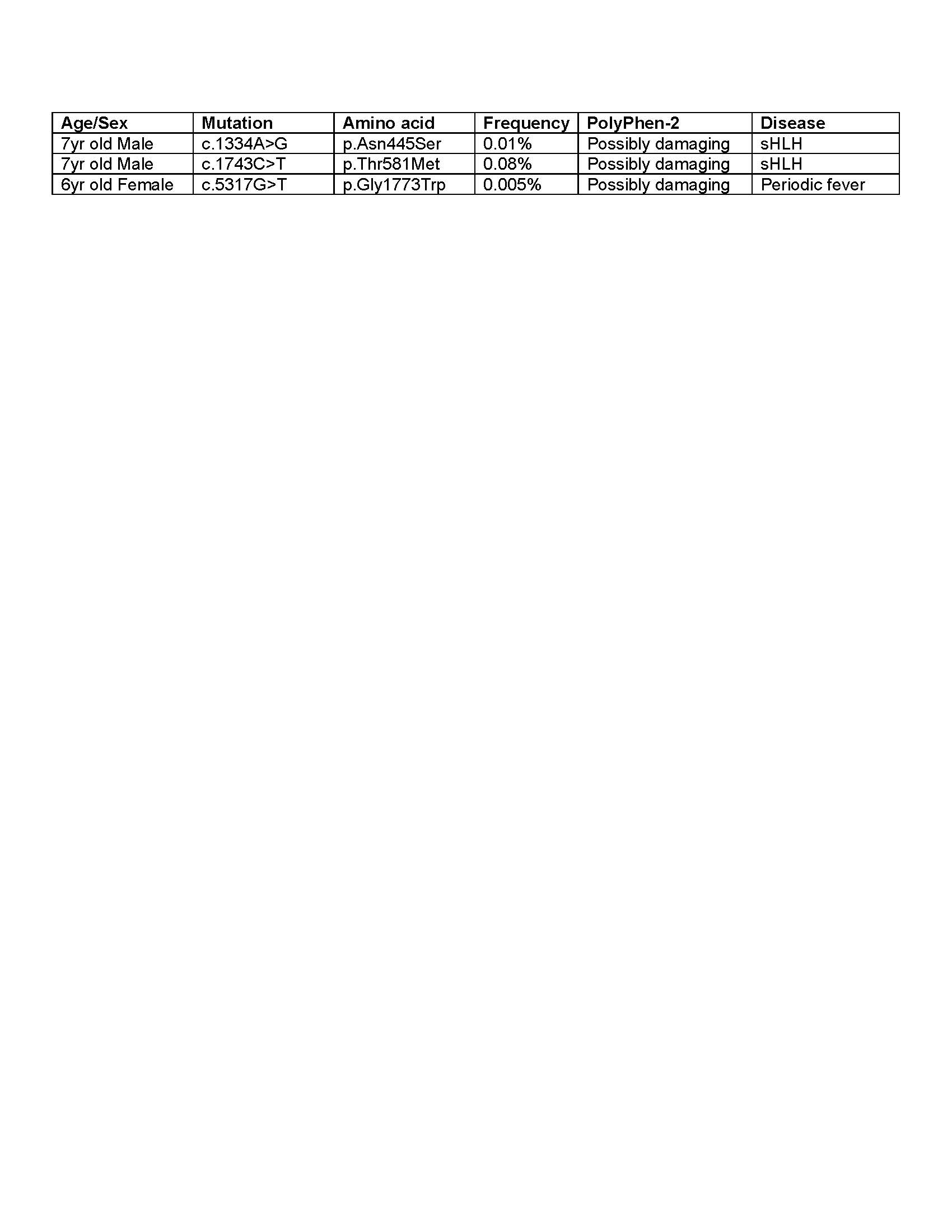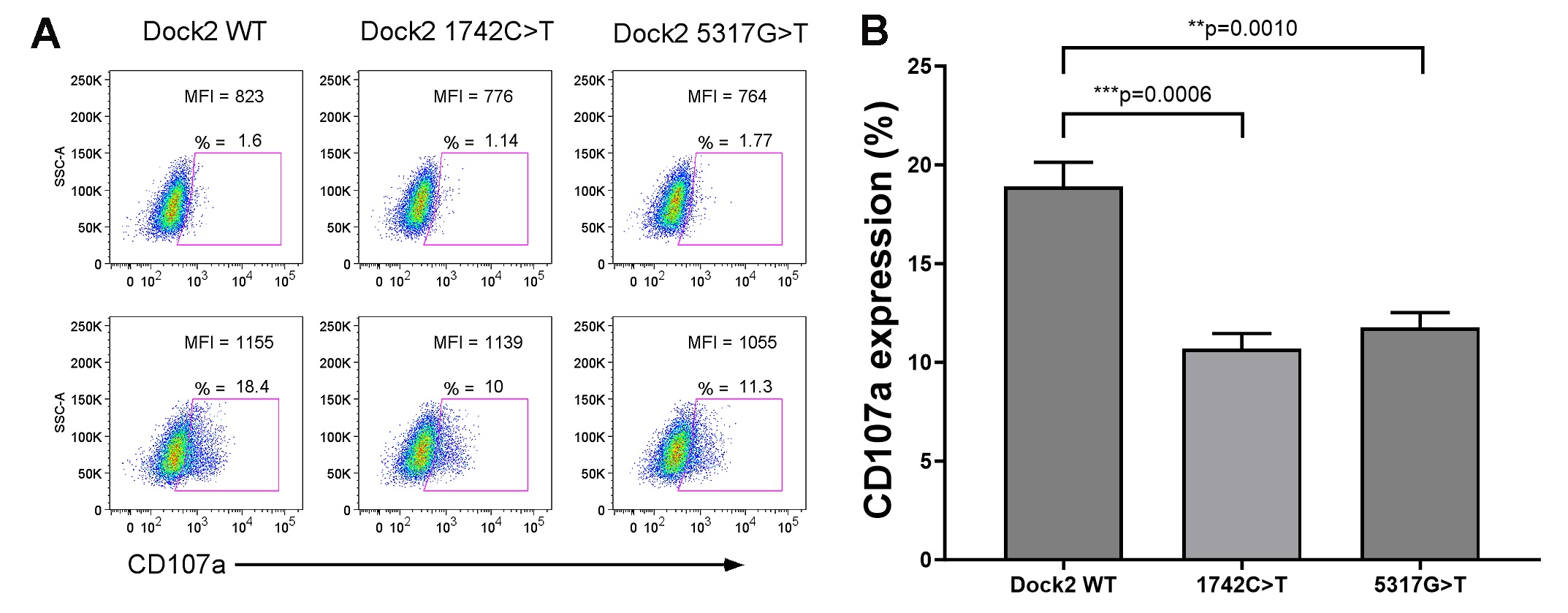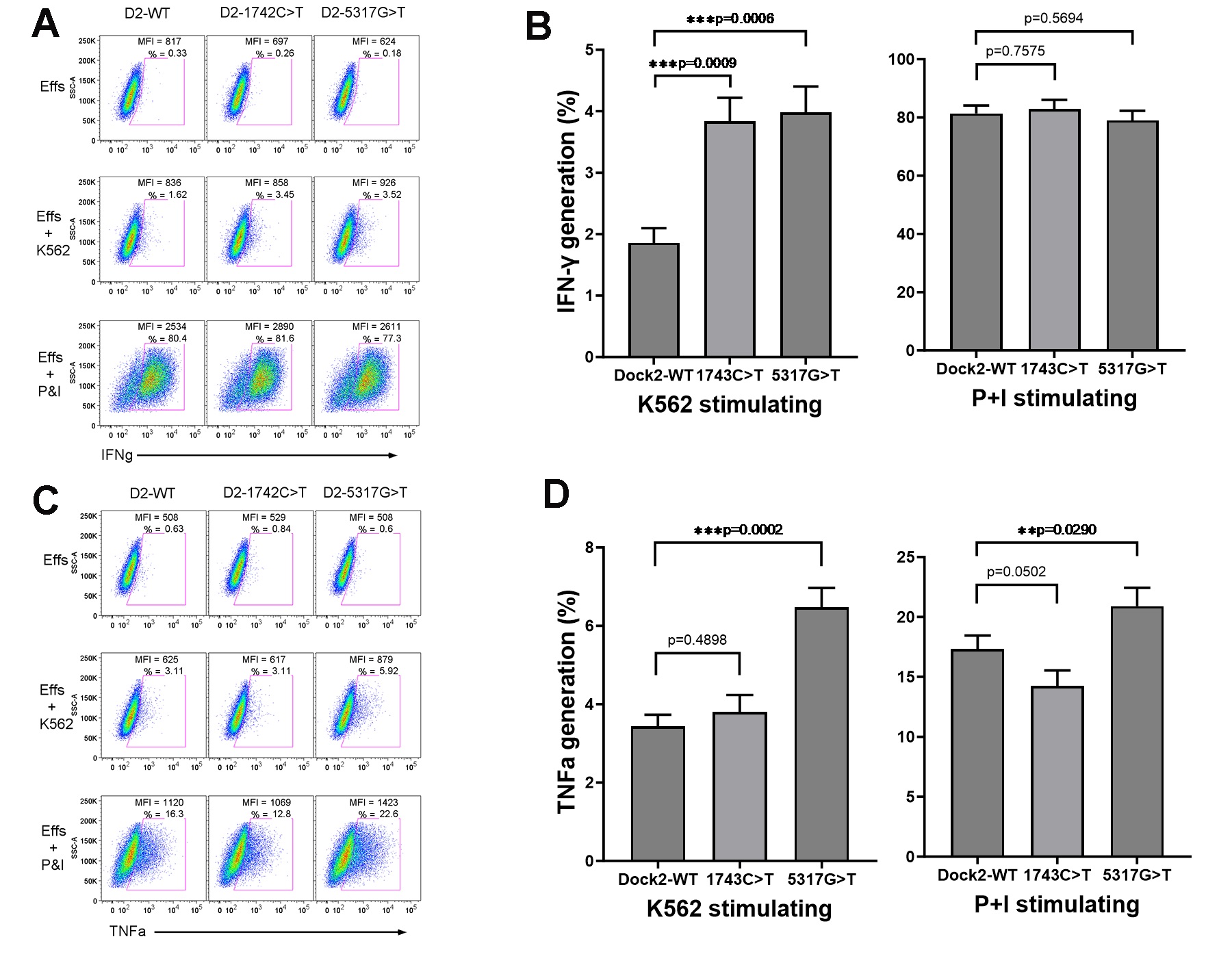Session Information
Session Type: Poster Session C
Session Time: 10:30AM-12:30PM
Background/Purpose: Cytokine storm syndromes (CSS) are frequently fatal hyper-inflammatory complications of a variety of oncologic, rheumatic, and infectious diseases. Many patients with CSS possess heterozygous missense mutations in genes related to the familial CSS, hemophagocytic lymphohistiocytosis (HLH) (PMID: 37011407). HLH is associated with defects in cytolytic lymphocyte killing of target cells through the perforin pathway leading to prolonged lymphocyte-target cell interactions yielding excess pro-inflammatory cytokine production (PMID: 37011407). We previously reported a partial dominant-negative missense mutation (c.1334A >G) in a potentially novel CSS gene, DOCK2, in a child with recurrent secondary HLH (sHLH) (PMID: 36836791). We have since identified 1 other child with sHLH and a child with a “PFAPA-like” recurrent fever syndrome who each had rare missense (amino acid changing) mutations in DOCK2 (Table) but not in other HLH associated genes, including DOCK8 (PMID: 35336791). Disruption of DOCK2, similar to DOCK8 (PMID: 23380217), has previously been shown to diminish natural killer (NK) cell lytic function (PMID: 23719299). Thus, we tested the newly identified DOCK2 mutations for their ability to alter NK cell function.
Methods: Patient-derived DOCK2 mutations, or wild-type (WT) sequence controls, were introduced into human NK-92 NK cells by foamy virus transduction. WT and mutant DOCK2-expressing NK-92 cells were incubated with K562 target cells and compared for cytolysis, degranulation (CD107a), and intracellular cytokine production by flow cytometry. Two-way ANOVA analysis was used to calculate p values (α = 0.05) for the NK-92 cell cytotoxicity, degranulation, and cytokine assays.
Results: Introduction of the 2 newly identified DOCK2 patient-derived missense mutations into NK-92 cells resulted in diminished NK cell cytolysis (data not shown) and degranulation (Figure 1). Diminished NK cell lytic function was associated with increased pro-inflammatory cytokine [tumor necrosis factor (TNF) and interferon-gamma (IFNg)] production by the NK-92 cells over-expressing the DOCK2 missense mutations (Figure 2). TNF and IFNg expression by the NK-92 was maximized by phorbol ester and ionomycin (P+I) stimulation and roughly equivalent between WT and DOCK2 mutations bypassing the effect of DOCK2 (Figure 2).
Conclusion: DOCK2 partial dominant-negative missense mutations are present in children with hyper-inflammatory syndromes such as sHLH and a recurrent fever syndrome with features of PFAPA. Like DOCK8, DOCK2 missense mutations may function as partial dominant-negatives altering NK cell function, resulting in increased pro-inflammatory cytokine production. Thus, like DOCK8, DOCK2 partial dominant-negative missense mutations may function as risk alleles for hyper-inflammatory syndromes, including sHLH.
To cite this abstract in AMA style:
Cron R, Zhang M, Atkinson P. DOCK2 Mutations and Hyper-Inflammatory Syndromes [abstract]. Arthritis Rheumatol. 2024; 76 (suppl 9). https://acrabstracts.org/abstract/dock2-mutations-and-hyper-inflammatory-syndromes/. Accessed .« Back to ACR Convergence 2024
ACR Meeting Abstracts - https://acrabstracts.org/abstract/dock2-mutations-and-hyper-inflammatory-syndromes/



